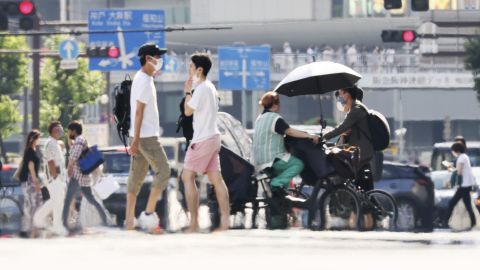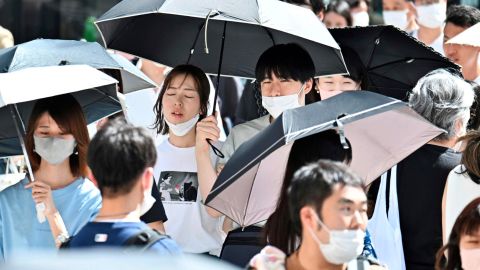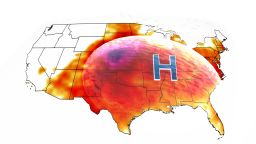일본이 찌는듯한 찜통 더위에, 도쿄를 중심으로한 도시민들에게 전력사용을 절제 해 달라는 당부를 했다고 한다. 만약에 Black out 되면, 도미노 현상이 일어나 전일본 열도가 암흑세계로 변할수 있기에 걱정이 태산인것 같다.
이보도를 보면서, 우리는 어쩌면 더 급박한 상황에 처해 있을수도 있다는 걱정이 태산이다. 탈원전만 안했어도, 절전을 논할 필요가 없을 정도로 편안한 여름을 보낼수 있었을텐데.... 그웬수놈의 문재인탈원전 정책으로 이지경이 된것을.... 이난리통에도 그어떤놈은 한가하게 에어콘 켜놓고 낮잠을 즐긴다고 하니.... 그래서 욕을 먹는거다. 그찌라시들은 그놈을 방어 하느라, 국회를 한달이상 넘게 공전시키는 혈안이고....태양열판 발전과 풍력발전만이 유일한 에너지 정책인양 떠들어 대고 전국의 산야를 깍아내고 난리를 쳐대더니, 아직까지 거기서 발전되는 전력의 양이 얼마인지 밝혀진것은 하나도 보도된적이 없다.
Japan이 37백만 도쿄를 포함한 그주변 시민들에게 전기를 절약해 줄것을 호소하면서, 에어콘작동은 지역별로 돌아가면서 사용하라는 호소를 하고 있는데, 어떤 지역은 섭시 40도를 오르 내리는 찜통더위속에서 이루어진 조치인 것이다.
일본정부는 시민들에게 오후에는 하루3시간씩 라이트를 끄고, 에어콘도 최소한 작동시키도록 호소하고 있는데, 전력부족을 해소하기위한 강구책인것으로 풀이된다.
이러한 정부의 호소는 전문가들이 지금같은 기록적인 찜통 더위는 앞으로 수주동안 지속될것이라는 경고가 나온후 취해진 조치다.
"제발 전기를 절약할수있는데까지 해주세요, 사용안해도 괜찮을 전등같은 소등해 주세요"라고 경제부, 산업통산부등등의 장관들이 월요일에 호소하고 있다. '열사병을 방지'하기위한 에어콘을 포함하여 최소한의 사용만을 권하고 있다.
지금 일본의 전력부족은 지난 3월부터 지속되고 있는데, 일본열도의 북동쪽에 있는 원자력발전소가 지진으로 발전을 중단 시키면서 부터다. 일본이 지진강도를 측정한 이후로 가장 강력한지진(earthquake)을 겪음과 동시에 전력수요는 2011년 이후로 최고조에 달해 어려움에 처해 있다는 것이다. 정부의 호소는 전력생산과 소비에 균열이 생기면 '매우심각한' 결과를 맞게 될것이라고 경고하는 것이다. 그럼에도 불구하고 요즘의 온도는 매우 위험한수준(dangerous levels)에 도달하여, 돌아가면서 전력을 공급하기는 매우 어려운 처지인 것이다.
화요일에 도쿄지역은 4일 연속 찜통더위가 계속됐는데, 주말에는 6월달 들어 기록적인 살인 더위였었다.
토요일에는 수도 도쿄는 35.4도를 기록했는데, 도쿄북쪽지역인 Isesaki시는 40.2도를 기록했었다. 일본이 1875년 부터 온도를 측정하기 시작한 이후로 가장 높았던 기온이었었다. 일본열도의 중앙에 위치한 Nagano는 35.1도 였었고, Niigata현의 서쪽 해안가의 Takada시는 36.7였었다.
이번 찜통더위는 주말까지 계속되며 아마도 더위는 더 심해질것으로 예측하고있다. 그것은 바꾸어 얘기하면 집안에 있는 시민들은 에어콘을 더많이 사용케 되여 전력수요는 더 많아질것이란 뜻이다.
일본의 찜통 더위는 요즘 일어나고 있는 여러 상황(happening)들이 일어나고 있는 나쁜 징조들중의 하나일뿐인데, 과학자들은 이러한 이상 징후는 기후변동으로 지구환경이 나빠지는 이유로, 수시로 발생할것이라는 경고를 하고 있는 것이다.
치솟는 온도(Soaring temperatures)가 최근에 인도와 파키스탄에서 발생하여 학교가 휴교하는 사태까지 있었고, 농작물은 피해가 많았고, 에너지공급에 악영향을 끼치고, 주민들은 집안에서만 있어야 했다. 동시에 많은 전문가들은 과연 이러한 찜통 더위에 우리인간들(fit for human survival)이 과연 살아남을수 있을까에 대한 의문점을 많이 걱정하고 있다.
일본만의 문제가 아니다. 미국의 중부지방에서도 37도 이상의 찜통 더위가 계속되 여, Minneapolis, Chicago, Nashville, Memphis, Dallas, New Orleans과 Atlanta가 더위에 시달리고 있다.
우리나라의 상황은, 앞서도 언급한것처럼, 일본과 비교해서 하나도 쉬울것 같지는 않은것 같다. 국민들의 배려와 에너지 절약운동에 서로 앞장서서 어려움을 나누어야 하는데.....

Japan is asking some 37 million people living in and around Tokyo to use less electricity and ration air conditioning even amid a record heat wave that has seen temperatures in some parts of the country pass 40 degrees Celsius (104 degrees Fahrenheit).
The government urged citizens in the capital to turn off lights and power switches for three hours in the afternoon and to use air conditioning “appropriately,” as the country struggles with growing power shortages.
The request comes despite experts warning that record-setting temperatures could continue for weeks.
“Please save as much power as possible, such as by turning off lights that are not in use,” the Ministry of Economy, Trade and Industry said Monday. It said appropriate uses of air conditioning included to “prevent heatstroke.”
Japan’s power supply has been tight since March, when an earthquake in the northeast forced some nuclear power plants to suspend operations. At the same time demand is at its highest since 2011, when Japan was hit by the strongest earthquake in its recorded history. The ministry warned the mismatch between supply and demand is becoming “severe.”
But with recent temperatures soaring to dangerous levels, rationing electricity will not be easy.
On Tuesday, Tokyo experienced scorching heat for a fourth successive day after setting records for the month of June at the weekend.
On Saturday, temperatures in the capital hit 35.4 degrees Celsius (about 96 Fahrenheit) , while the city of Isesaki northwest of Tokyo hit 40.2 degrees Celsius (about 104 Fahrenheit) – the country’s highest in June since record keeping began in 1875. Meanwhile, Nagano city in central Japan hit 35.1 degrees Celsius (about 95 Fahrenheit) and Takada district in Niigata prefecture on the west coast registered 36.7 degrees Celsius (about 98 Fahrenheit).
The sweltering temperatures are forecast to last for the rest of the week and possibly worsen – meaning demand for power was likely to increase as residents stay home and turn on the air conditioning.

Japan’s heat wave is just one of many happening around the world as scientists warn extreme weather is becoming more frequent due to the worsening climate crisis.
Soaring temperatures in India and Pakistan in recent weeks forced schools to close, damaged crops, put pressure on energy supplies and kept residents indoors – with some experts questioning whether such heat was fit for human survival.
And a massive heat dome has engulfed parts of the United States, bringing temperatures above 100 degrees Fahrenheit (about 37 Celsius) to major metro areas including Minneapolis, Chicago, Nashville, Memphis, Dallas, New Orleans and Atlanta.
In addition to the heat, floods have inundated Yellowstone National Park, wildfires have blazed in Arizona and New Mexico, and severe storms have caused widespread power outages in the upper Midwest and Ohio River Valley.
“More frequent and intense heat waves in cities are to be expected with further global warming,” said climate scientist Winston Chow from the College of Integrative Studies at Singapore Management University.
“I fear that for such places, this is [now] the new climate normal … if nothing is done to adapt and mitigate the causes of climate change.”
Especially worrying, Chow said, was the impact of extreme heat on the elderly, who account for 28% of Japan’s population.
“The elderly are biologically, physiologically predisposed to being more vulnerable to heat related injuries, and more than a quarter of Japan is above the age of 65. The risk of heat stress and stroke without any attempts to adapt would be very high in Tokyo,” Chow said.


No comments:
Post a Comment